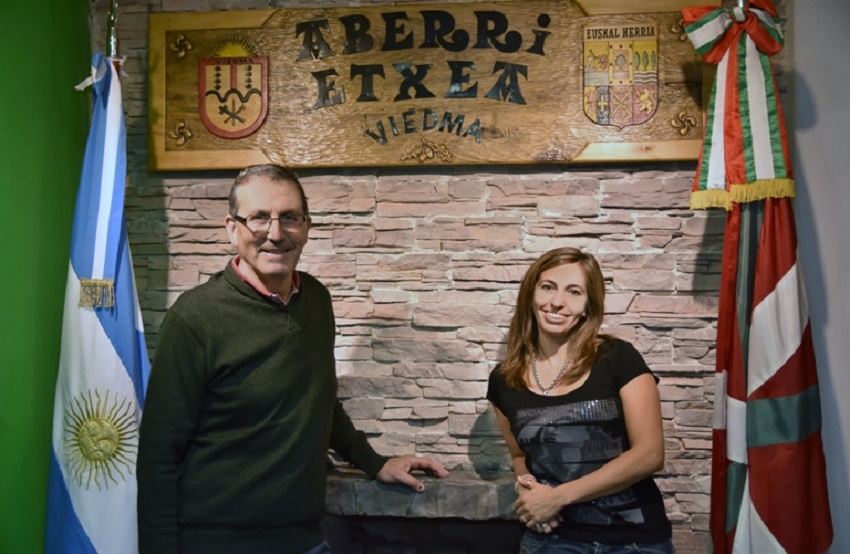Rocío Basterra de Vall Iturria not only has a long career in the Basque club in the county of Viedma y Carmen de Patagones: dantzari, Basque teacher, txikis’ instructor and now after the General Assembly, president of the club, the institution’s youngest and first local Basque-speaking president. Rocio, who is also known as a presenter on ETB, was thrilled with the honor.
Viedma-Patagones, Argentina. As of this week, the Basque club that gathers the Basque community in Carmen de Patagones in the province of Buenos Aires, and Viedma in the province of Rio Negro has a new president. Outgoing president, Raul Goycochea passed the baton to Rocio Basterra who will run the club for at least the next two years.
Rocio told EuskalKultura.com that she offers continuity, not only because part of the board was also at the previous administration, but also because the long-established objectives must be met.
In this way, the teacher stressed that she will concentrate on two lines of work: strengthening the relationship of the club with other institutions, nationally and internationally, as well as expanding its facilities. The new board will also concentrate on carrying out activities that allow them to become self-sufficient, encouraging youth to become involved in the club, giving visibility to Basque-Argentine values. Under the new direction, they will also continue social work in the county, since Aberri Etxea already serves as a “god father” of the Casa de Abrigo in Patagones and the Jardin 70 in Viedma.
Cultural offerings
The Basque Club in the county of Viedma and Patagones currently has a dance group “Lagun Onak,” choir “Abestu Beti,” open to all ages and voices; a children’s workshop that transmits language, culture and Basque values, and Basque classes and workshops. They will also resume their Basque Film Series and will continue with gastronomic activities. The new president isn’t just a member of the choir and dance group, but she also teachers Basque to children and adults.
A career on both sides of the Atlantic
Born in Viedma to a Basque family, Rocio didn’t live well enough alone with what she had learned at home; but instead she was active also at Union Vasca in Bahia Blanca where she lived for more than 10 years, and Aberri Etxea in her hometown. She also studied the history of Euskal Herria, dancing and Euskera. This allowed her to become a dantzari, and eventually a Basque teacher, making her a Basque cultural reference nationally. It also allowed her to cross the Atlantic to make her place there as well.
In the last few years, Rocio was trained as a Euskera teacher as part of HABE’s Euskara Munduan program. She also presented Basque TV programs like “Orain 80 Urte” (80 year ago), a documentary about the 80 years of the Basque Government, and the summer program “Yes we jai.”
In 2018, leading the Aberri Etxea Basque Club will be a new step for the teacher, a new step that she will take successfully, as all the others in the past. Zorionak, Rocio!






 Send to a friend
Send to a friend Add comment
Add comment








